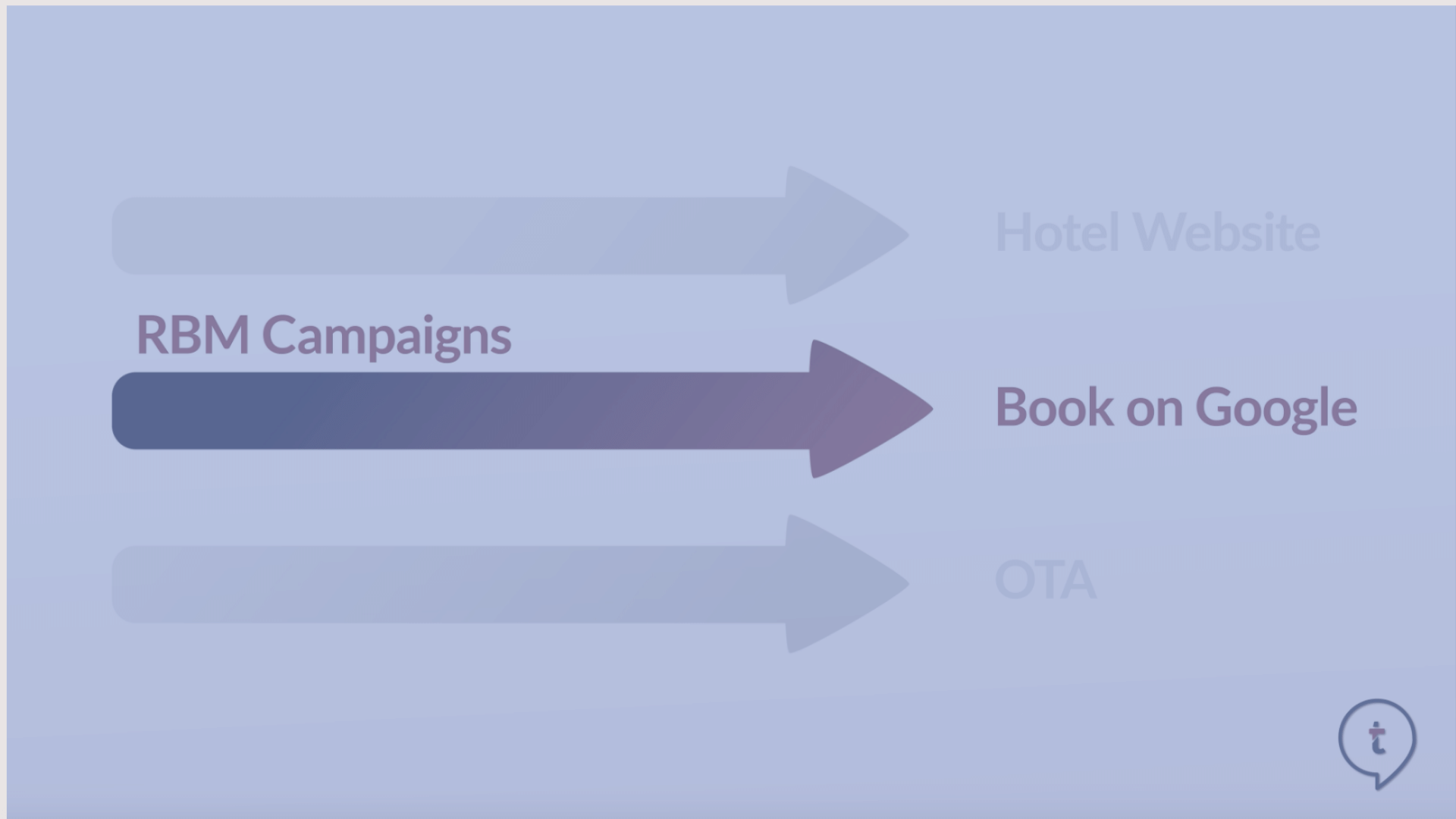A travel industry overview: From ‘best rate’ war to blockchain boom
Author: Pedro Anderson. Founder & COO of Winding Tree.
The travel industry is perfectly set to embrace the technology on the tip of everyone’s tongues: blockchain. Why? When we look at the blockchain, the widespread adoption of the technology is inevitable. Every industry can benefit from it, yet the travel industry is ripe for the kind of disruption blockchain provides. The disinter-mediated disruption that parallels blockchain adoption will mean a natural evolution from the old, controlled systems, to one in which everyone openly collaborates for the betterment of the industry.
Many travel agents and corporate travel bookers rely on outdated systems to manage the booking process of flights and hotel rooms. These intermediaries charge high fees to consumers and suppliers - such as airlines and hotels, making the process slow and inadequate to our fast-paced lifestyles and technology-driven world.
We’re starting to witness industry firsts, but not in a positive way. Well-known giants in the hotel industry feel like they've lost sight of their product, with no control over the pricing of their own rooms and services. As more and more third parties pop up, we are seeing a trend in which travel corporations are choosing to diminish the risk of price fluctuations by working with a single intermediary of their choosing rather than multiple. For instance, hotel giant Marriott recently decided to team up with one of its eternal rivals, in order to gain back some semblance of control over prices. As Skift reported: "In an industry first, Expedia Group will next month become the exclusive distributor of Marriott International wholesale and promotional room rates, availability, and content."
But why and how did this happen? Why would Marriott not only partner with, but also give exclusive distribution rights to one of its eternal “enemies?” It seems like they’ve simply given up, with no other viable alternatives in sight. According to Robert Cole, a senior research analyst at Phocuswright, Marriott’s decision comes from a place of wanting to “pick and choose whom they work with directly,” and the hotel giant is merely, “flexing its muscles the same way Southwest did when Southwest decided to limit its distribution channels and said you can only book with them directly on their site or through Southwest Vacations."
But is this just a desperate attempt to save face (and maybe some dropping prices)? Or does Marriott and Expedia’s joint venture reveal a potentially worrisome trend in the space? According to John Werner, COO and President of MAST Travel Network, the move “doesn’t feel right. If they control product and rate inventory like that,” he asks, “will all rates be available to our members?”
The travel industry is chaotic, archaic, and seemingly at a major crossroads for the future. So where do we go from here? How does an industry advance when it is not only shackled by outdated technology, burdened with bureaucracy and an endless list of intermediaries, but also faced with little to no options to change?
Lucky for all the travel enthusiasts like us out there, emerging technology is creating solutions that are tackling some of these problems and taking the travel industry from medieval times back to the future. Let's discuss what's currently available and what's coming next.

Blockchain technology
Blockchain technology has been around for quite some time, but it really made a splash in 2017, without signs of slowing down anytime soon. The ownership over data that a public blockchain offers can be beneficial to almost any industry: “The decentralized, permanent, time-stamped, and unalterable nature of the data recorded in a [public] blockchain means that data is more secure, traceable and transparent. After all, there is no central point of vulnerability or failure, and the data itself is resistant to modification and unwanted tampering.”
Specifically for the travel industry, blockchain can offer stability and security, protecting airlines and hotels from cyber attacks, malicious activities, or fraudulent payments. Blockchain can help solve many of the pain points in the travel industry - not only for corporations like Marriott who are afraid of losing control of prices, but also for the consumer.
Probably blockchain’s biggest claim to fame in the travel space is its ability to remove intermediaries. Marriott’s latest deal with Expedia shows an effort to target the "intermediary that plays fast and loose with the rules." Blockchain technology gives airlines and hotels the freedom to publish available inventory without the intermediate systems that aggregate data, saving costs for both suppliers and end-users.
For suppliers, blockchain offers better control of data, allowing suppliers to determine who sees inventory; it can facilitate the creation of different rules for each partner. What does this mean? It solves the problem of the ongoing battle of access to customer data.
Blockchain technology can have a much wider reach in the hospitality and travel space, especially when looking at the benefits for hoteliers. Blockchain ensures that stored data is secure, it also can guarantee that reviews are authentic and untampered with, validating that feedback was left by a real customer.
Blockchain is the perfect solution for traditional industries in desperate need of trust and control. The hotel industry is in great need of both. Nordic Choice Hotel, for example, has started to apply blockchain technology to work closely with third parties, and specifically startups and smaller players in the travel industry. Like Marriott, Nordic Choice Hotel wants to sell rooms, and making business with industry third parties is key. At the same time, keeping track and maintaining control over their inventory to determine who gets to sell their rooms and how, is extremely important as well. Nordic Choice has chosen to incorporate Winding Tree's travel distribution platform to streamline trust and vetting procedures when working with third parties while maintaining control over their inventory, and this is made possible through decentralized blockchain technology.

Open-source technology: Blockchain’s perfect bride
While a public blockchain in and of itself offers a plethora of benefits to the travel industry, its benefits are only heightened when paired with open source technology. Open source software development plays an integral role in building trust and safety into blockchain networks, and its core values often parallel those of a public blockchain.
Open source technology is produced collaboratively, shared freely, published openly, and developed for the greater good of the community, rather than for the benefit of a single business entity or person. All those things embody the principles associated with blockchain. As CoinCenter explains, “Just as there is no single company that powers the Bitcoin network, neither is there one company that makes the software that, when run on internet connected computers, creates that network...The goal isn’t to produce something that enriches a company that makes and sells the product, but—rather—to produce something that solves a problem common enough that a large community of talented programmers is happy to dedicate their efforts to the task.”
As blockchain technology advances, we’ll see real use cases emerge that highlight the benefits of both public blockchain and open source. The open source, transparent nature of this combo is set to transform the industry.
A good example of this is Winding Tree's ORG.ID solution. ORG.ID is an open-source B2B protocol that allows organizations to quickly expand their partner networks. Today, you either have to manually vet new partners before you authorize them to access your APIs, or you go through an intermediary. By choosing the latter, you might make your company entirely dependent on one proprietary protocol, potentially paying a hefty price for their services, and limiting yourself to their network. The majority of our partners came to Winding Tree with the hope of resolving this conundrum. And ORG.ID has delivered.
We already can see a use case of ORG.ID today in Nordic Choice Hotels as well.
Nordic Choice Hotels uses ORG.ID to allow pre-vetted business partners to access their inventory and bookings. The "vetting" part is the key to securing identity checks when companies are interacting with each other. In the hotel industry, the effort required to approve one company to interact with its API is too costly. It means that a company that doesn't guarantee a steady volume of bookings won't be considered for partnership. With ORG.ID, the vetting process is fully automated or reduced significantly. By providing its ORG.ID, Nordic Choice Hotel's potential partner proves that it is a company in good standing, using what we call "verifiable claims" about themselves. Nordic Choice Hotels, of course, has rules (a set of mandatory verifiable claims) that their future partners must meet before they can obtain an API key.

Public blockchain technology is the inevitable next step, and is perfectly ripe to disrupt the travel space. And yet, with great power, in the form of ownership and control of your data that blockchain provides, comes great responsibility in the form of private key management.
Many in the travel industry have not explored best practices for private key management to be prepared for the next level. Blockchain provides integral components of authentication and security in the infrastructure of key management. From the chain of information and customer reviews, to baggage tracking and locating records, blockchain has the potential to change and improve all aspects of the bureaucracy that is the travel space.
For hotels, and hotels owners considering adopting blockchain technology, a solution such as ORG.ID is a powerful first step to familiarise yourself with blockchain and establish your presence. Once hoteliers set up their verifiable claims, they will be able to fully benefit from the power of truly decentralized technology, and claim ownership and control of their offerings thanks to this exciting new wave of technology.
About the author: Pedro is the founder and COO of Winding Tree. Pedro is a social entrepreneur, fundraiser, and proponent for decentralised systems. Prior to Winding Tree, Pedro sold millions of dollars of SaaS products and raised funding for numerous non-profit projects including a foundation to help disadvantaged youth start careers in hospitality. Winding Tree is a non-profit foundation that drives the development of open-source protocols for the travel industry.




 Free download
Free download

![V03: The History of Hotel & Travel Technology | [Updated] Infographic](https://techtalk.travel/storage/app/uploads/public/63f/e6f/ec8/63fe6fec80447817849943.jpg)



Create an account to access the content.
Get access to Articles, Video's, Podcasts, Think Tanks, Infographics and more.
Click “Sign In” to accept our
Terms of Service Privacy Policy